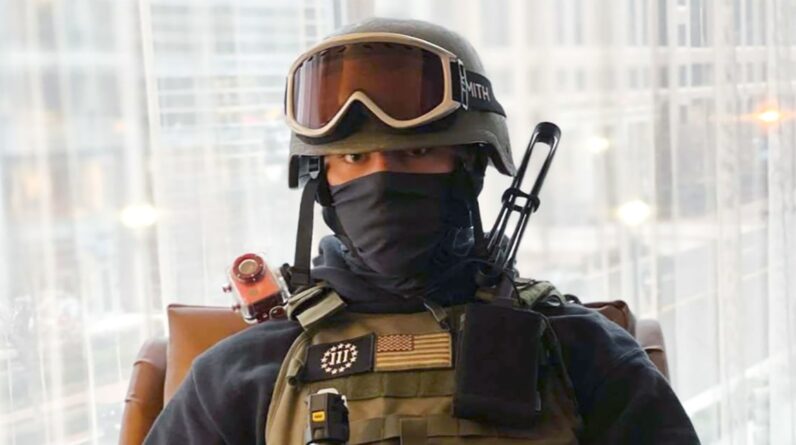
WASHINGTON – A federal judge appointed by former President Donald Trump on Friday gave a “break” to a man who used bear spray during the Jan. 6 attack on the Capitol, saying he did not deserve the prison sentence he sought by the prosecutors.
U.S. District Judge Trevor McFadden sentenced Tyler Bensch, who pleaded guilty to two misdemeanors in connection with the riot, to two years of probation and 60 days of home confinement. Prosecutors had asked for nine months in federal prison.
“You participated in a national embarrassment,” McFadden said before imposing the sentence. “You came prepared for trouble.”
But, he added, Bensch’s involvement was “quite minor” compared to others, although he noted that his age was a mitigating factor. Bensch was 19 years old on January 6, 2021.
“I give you that break because of your age” at the time and lack of criminal history, McFadden said. “This doesn’t have to define you or your life.”
Bensch was arrested in August along with members of “B Squad” who were associated with the far-right movement Three Percent and “Guardians of Freedom”, as well as Jeremy Liggett, a far-right extremist who he ran unsuccessfully for a seat in Congress. last year.
Bensch pleaded guilty a disorderly and disruptive conduct on restricted grounds along with theft of government property, admitting he helped carry a police shield stolen from the Capitol grounds. In an interview with the FBI after his arrest, Bensch said members of B Squad participated in firearms training and hand-to-hand combat training before the attack .
In their sentencing memo, federal prosecutors said Bensch “helped push others toward violence” and carried a chemical irritant spray, which prosecutors told the court was bear spray. Bensch deployed the spray “against another rioter” that day.
A tearful Bensch did not speak during Friday’s sentencing hearing, but his court-appointed attorney Peter Cooper said the Florida man deeply regrets his actions. Bensch, Cooper said, “didn’t have the maturity to understand what he was getting himself into” and “bears great remorse for what he did that day.”
Cooper went on to say that Bensch hopes to begin a career in law enforcement, adding that it’s “not out of the realm of possibility” that he could do so even with his misdemeanors. Bensch currently works for a pool cleaning company, and the terms of his sentence will allow him to leave home to work during his 60 days of house arrest.
Bensch’s case was the impetus for the departure of a self-proclaimed FBI whistleblower to take his complaints to Republican members of Congress. Steve Friend, a former FBI special agent who was in Florida at the time of Bensch’s arrest, had been scheduled to transport Bensch, but declined to do so.
Friend, according to a book he wrote, told other FBI employees that he didn’t think the rioters who attacked the agents on Jan. 6 should be charged. He later testified before the GOP-led House Select Subcommittee on Federal Government Armaments, a new panel that focuses on allegations that the government unfairly targets conservatives.
Friend said he believed federal authorities were taking the Jan. 6 defendants “to the gallows” because their cases were being tried in Washington, D.C. “They have no chance if they go to court,” Friend said.
The rioters have been acquitted of many charges by both juries and judges, with McFadden acquitting Jan. 6 defendant Matthew Martin months before Friend was supposed to help transport Bensch.
McFadden also sentenced Bensch’s co-defendant, Jonathan Rockholt, to five months in federal prison on Friday. The prosecutors had looked for 13 months in prison.
The Senate McFadden confirmed in 2017 by a vote of 84 to 10, with all opposition coming from Democrats.
On Friday, in a separate case from Jan. 6, Barry Ramey was sentenced to five years in federal prison. Prosecutors had initially requested nine years in prison for the Proud Boy member who hit two officers with pepper spray, but U.S. District Judge Dabney Friedrich said that would create an unjustified sentencing disparity.
More than 1,000 people have been charged in connection with the January 6 attack, and more than 300 have been sentenced to prison terms. The longest sentence (18 years) was for Oath Keepers founder Stewart Rhodes, who was convicted of seditious conspiracy.
[ad_2]
Source link





